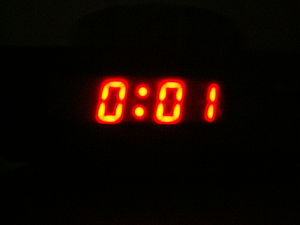So, you’re writing a book and you want to sell it to a literary agent or publisher?
Okay, you’ve got one minute to tell me what your book is about, make me fall in love with your character, and suggest titles your book will sit next to on the bookshelf.
Go.
Sounds daunting, doesn’t it? Yet that’s exactly what authors must do, according to Arielle Eckstut and David Henry Sterry, known as The Book Doctors, authors of The Essential Guide to Getting Your Book Published (Workman, 2010). The Book Doctors held a “Pitchapalooza” event in Kansas City, MO, on February 28; I was one of 20 or 25 lucky souls randomly selected to pitch a book to them and three other experts in front of an audience of about 300. The experts critiqued each entry, giving both positive feedback and suggestions for improvement.
I’ve spent the weeks since then doing primarily two things: 1) writing my book, which helps in knowing what to pitch, and 2) rewriting and rewriting and rewriting my pitch, incorporating the experts’ suggestions as well as some new ideas of my own.
I thought it would be a good idea to present my pitch here so all of you prospective authors can get a sense of what's in store for you. But also I need your help.
Whether you’re an author, a literary agent or publisher, or a reader (the most important audience, anyway), your feedback is crucial in telling me whether I’m on the right path or even if my idea sounds worth investing time and resources in turning into a novel. After all, there’s no sense in writing the darn thing if nobody is thrilled enough to buy the book.
A pitch is similar to what you see on the dust jacket of each book: Those few sentences that tell you what the story is about, who the main character is, and why you don't want to put the book back on the shelf. And the author has to be able to give the pitch in one minute or less. (For the record, the following version took me exactly one minute to read aloud to myself.)
So, here’s my pitch as it currently stands. (Of course, everything below is © 2011 Greg Gildersleeve.)
Damon Neumeyer does not want to move to “the district,” where the freaks live. But when his power to create darkness is discovered, he and his family – his always working father, overprotective mother, and very ordinary brother – are forced to move to the special section of town, where he can grow up alongside other kids who have powers.
Damon eventually gets used to the place and his new friends, but when some of them form a group called The Power Club, Damon wants to join. To win their approval, Damon must discover just how powerful and terrifying his darkspace can be – and that is only the beginning of his journey. Protesters, a classmate who can cause kids to disappear forever, and a rogue terrorist convince Damon that The Power Club can be a force for good. But can Damon convince his teammates that being heroes is more important than softball practice?
The Power Club combines the super-powered action of Michael Carroll’s The Quantum Prophecy with the coming-of-age fantasy of Ursula K. LeGuin’s Gifts. It takes readers on an amazing and terrifying journey of discovering the powers within us all.
What do you think?





6 comments:
This is great information. I think you did a great job at Pitchpalooz.
Thanks, Kristi.
Not bad as a pitch. But is it smart to mention other authors' books? Especially where the are similar to yours. I understand that it encapsulates the essence of what your book is about. But why should I (the hypothetical average reader) read your book instead of Ursula K LeGuin's? She is a famous sci-fi writer after all. Granted if I had already read her book and liked it, I may try your. But then I would be comparing the two as I read yours.
That said, I would still be interested in reading your book.
Thanks for the feedback, Quis.
As for other authors' books, The Book Doctors are clear that, if you are selling your book to a publisher or literary agent, you need "comp titles" (or comparable titles). Publishers want a book that is similar to what has sold before yet approaches the topic in a new way.
The idea is that fans who liked "Gifts" (as you did) will also like my book.
Your idea of thinking about the "pitch" in terms of book jacket copy - really nothing more than a concise written pitch - is a great tip! Thanks!
And, as someone who reads a fair amount of book jacket copy every day at work, including other authors' works as points of reference is quite common. I think it works really well, especially for new authors, and I don't find it discourages me from reading the book if I'm interested in it just to re-read something I'm already familiar with.
As for if it would move me to buy a copy for myself, I'd say probably not. Not that it wasn't a compelling pitch, but it effectively told me that the book is in the bildungsroman genre, one that doesn't interest me personally. On the other hand, I would suggest my library buy a copy, as I know it would easily find its audience there.
Thanks for the feedback, Dale.
A Bildungsroman, eh? I hadn't really thought of it that way, though there's a certain coming-of-age quality to the story. Mainly, it's about getting kids to see that we all have special talents and abilities (e.g., powers).
It's good to know your library might be interested in a copy.
Post a Comment